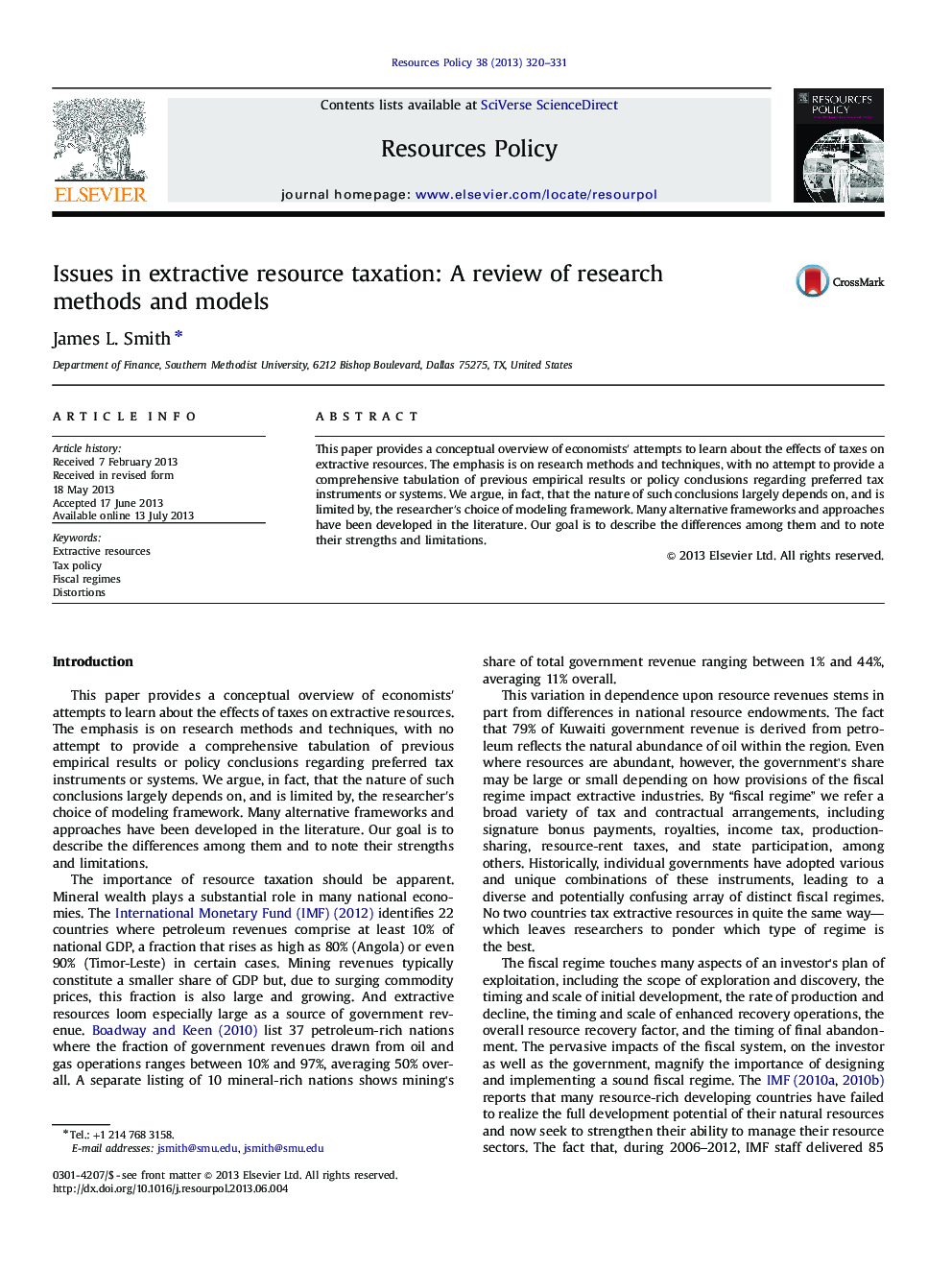| Article ID | Journal | Published Year | Pages | File Type |
|---|---|---|---|---|
| 986289 | Resources Policy | 2013 | 12 Pages |
•We provide a conceptual overview of methods used to study tax distortions in the extractive resource industries.•Many modeling approaches tend to overlook the implications of predictable taxpayer efforts to reduce the burden of the tax.•Models that do account for taxpayer reaction produce more reliable, but counter-intuitive, conclusions regarding tax policy.•Recent modeling advances have improved our ability to identify the true nature of tax distortions.
This paper provides a conceptual overview of economists′ attempts to learn about the effects of taxes on extractive resources. The emphasis is on research methods and techniques, with no attempt to provide a comprehensive tabulation of previous empirical results or policy conclusions regarding preferred tax instruments or systems. We argue, in fact, that the nature of such conclusions largely depends on, and is limited by, the researcher′s choice of modeling framework. Many alternative frameworks and approaches have been developed in the literature. Our goal is to describe the differences among them and to note their strengths and limitations.
